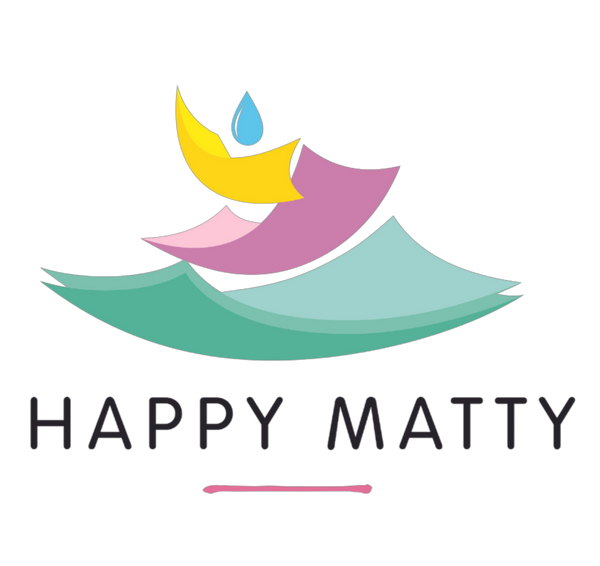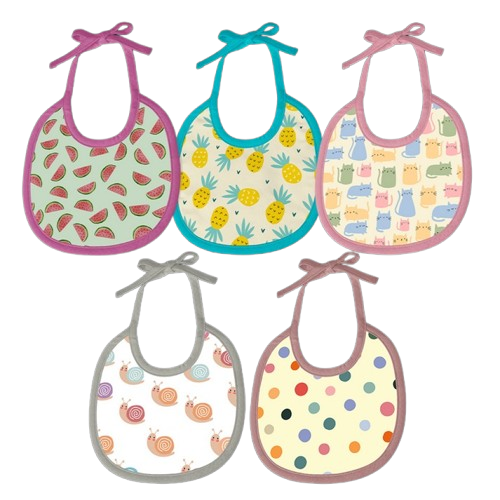As parents, we’re constantly making choices when it comes to keeping our babies safe, comfortable, and happy. One item that’s easy to overlook in the daily care routine is the baby bib. These small, often colorful accessories play a significant role in protecting your baby’s clothing from spills and messes during mealtime. But have you ever stopped to consider how often you should be washing baby bibs to ensure they stay hygienic and safe for your little one?
In today’s world, where cleanliness is a top priority, especially with babies, understanding the right frequency for washing bibs is crucial. It’s more than just about removing the stains. Bacteria, food residues, and even germs can thrive on these bibs, potentially causing discomfort or health issues for your baby. Whether you’re a first-time parent or have been through this phase before, it’s essential to pay attention to the care and maintenance of these everyday baby essentials.
Let’s take a closer look at why cleaning your baby’s bibs regularly is vital, the best practices for doing so, and how to make sure you’re using the right methods to keep your baby safe and comfortable.
The Importance of Hygiene for Baby Bibs
As your little one explores the world of solid foods, bibs become your trusty sidekick in protecting their clothes. But beyond just keeping the mess contained, baby bibs are often in direct contact with food, saliva, and sometimes even germs from toys or surfaces. This constant exposure makes them prime candidates for accumulating bacteria, which can quickly turn into a breeding ground for illnesses if not cleaned properly.
When you feed your baby, the bib catches not only the food but also any drool, which can contain bacteria from the mouth. If left unwashed for too long, this can create a perfect environment for harmful germs to grow. The concern doesn’t stop at the bib’s surface either. Babies tend to explore with their hands, and any residue on the bib can easily transfer to their tiny fingers, which they inevitably put into their mouths.
Regularly washing your baby’s bibs doesn’t just remove the visible food stains but also ensures that any bacteria or germs are effectively eradicated. This helps reduce the risk of infections, skin irritations, and even rashes, providing your baby with a clean, safe environment during mealtime.
How Often Should You Wash Baby Bibs?
The frequency with which you wash your baby’s bibs depends on several factors, including how often your baby uses them, what foods they eat, and how messy the feeding sessions are. However, a good rule of thumb is to wash the bibs after each use. If you have a particularly messy eater, you may want to wash the bibs even more frequently to ensure they remain free from bacteria and unpleasant odors.
It’s important to consider the type of bib you are using. Cloth bibs, for instance, tend to absorb more food and moisture compared to silicone or plastic ones, which can be wiped clean more easily. Cloth bibs, however, may require washing immediately after each meal to avoid bacteria buildup. Silicone bibs, on the other hand, are more durable and easier to maintain, but they still need to be washed regularly to maintain proper hygiene.
Another factor to consider is how often your baby eats. If you are introducing solid foods to your little one, bibs may be in use several times a day, increasing the frequency of washings. On days when your baby eats multiple times or has a particularly messy meal, a fresh bib might be necessary for each feeding session. Keeping a few extra bibs on hand can make this process much easier, ensuring that your baby always has a clean one available.
Understanding the Impact of Bacteria and Germs
It’s no secret that babies have delicate immune systems, and their skin is especially sensitive. Bibs that are not properly washed can trap bacteria, food particles, and even yeast. This can cause a range of issues, from mild discomfort like skin rashes to more severe conditions such as oral thrush, which is a yeast infection in the mouth.
Food particles left on a bib can also dry and harden, making them harder to remove the next time you clean it. These stubborn food remnants can create a welcoming environment for bacteria and mold, especially if the bib is left damp or in a warm environment for too long.
For instance, consider those moments when your baby is teething. Teething babies tend to drool a lot, and their bibs are often wet throughout the day. If these bibs aren’t washed regularly, they can harbor germs that may irritate your baby’s skin, leading to rashes or other skin conditions.
Fabric Care: How to Properly Wash Baby Bibs
When it comes to washing baby bibs, it’s important to use gentle, baby-safe detergents to avoid irritating your little one’s skin. Harsh chemicals can leave residues on the bib, which can easily transfer to your baby’s skin and cause allergic reactions. Choosing a detergent that is free from dyes and fragrances can help reduce this risk.
Washing bibs in hot water can help eliminate most bacteria and germs. However, make sure to check the care instructions on the bib before using hot water, as some bibs may be made from materials that shrink or warp under high temperatures. In cases where you want to preserve the bib’s color and shape, washing them in cold water might be more appropriate.
For cloth bibs, consider pre-soaking them if the food residue is particularly stubborn. This can help loosen the stains and make them easier to clean. After soaking, wash the bib in the machine or by hand, depending on your preference. For silicone or plastic bibs, a quick rinse under warm water after every use should suffice to keep them clean.
How to Properly Store Baby Bibs Between Washes
Between washings, storing your baby’s bibs properly can also help maintain their cleanliness and freshness. After use, rinse off any food particles and wipe the bib down with a damp cloth to remove any remaining mess. This simple step can prevent bacteria from setting in before you have a chance to wash the bib.
For cloth bibs, allow them to dry properly between uses to prevent mold or mildew buildup. Hanging them up or laying them flat to air dry is a good way to keep them fresh. It’s also important to ensure that the bibs are completely dry before storing them in a drawer or cupboard. Damp bibs can develop a musty smell, making it less pleasant for your baby to wear.
For silicone or plastic bibs, storing them in a dry place is sufficient to prevent mold. These bibs typically dry quickly, but make sure to check for any leftover food particles after each use. A thorough rinse will ensure that no food residue is left behind.
Tips for Maximizing Hygiene When Using Baby Bibs
Here are a few simple tips to maximize hygiene when using baby bibs:
Rotate bibs frequently: Keep a few bibs on hand and rotate them daily to avoid overuse of any single one. This way, you can ensure that there’s always a clean one ready for the next meal.
Don’t wait too long to wash: If your baby has drooled or made a mess, wash the bib as soon as possible. This minimizes the risk of bacteria buildup.
Invest in bibs made from easy-to-clean materials: Silicone and plastic bibs are more durable and easy to wipe down, making them a practical choice for parents who want to save time on laundry.
Use natural cleaning products: Gentle, natural detergents are best for washing your baby’s bibs to prevent any irritation to your little one’s sensitive skin.
Suggested Reading: The Adorable Charm of Bunny Crochet Rattles: A Perfect Gift for Babies
Conclusion
In the world of baby care, cleanliness is key. While bibs are designed to keep your baby’s clothes clean, they, too, require regular cleaning to maintain hygiene. As parents, it’s crucial to establish a routine that ensures your baby’s bibs are washed frequently, ideally after each use, to eliminate bacteria, food particles, and germs. Remember, the health and comfort of your baby should always be your top priority, and taking the time to properly care for their accessories, like bibs, goes a long way in providing a clean and safe environment.
At Happy Matty Store, we understand the importance of keeping your baby’s essentials in top shape. With our high-quality baby products, including bibs made from safe, durable materials, you can trust us to help make mealtime both fun and hygienic. Check out our collection at Happy Matty Store for more baby care solutions.



